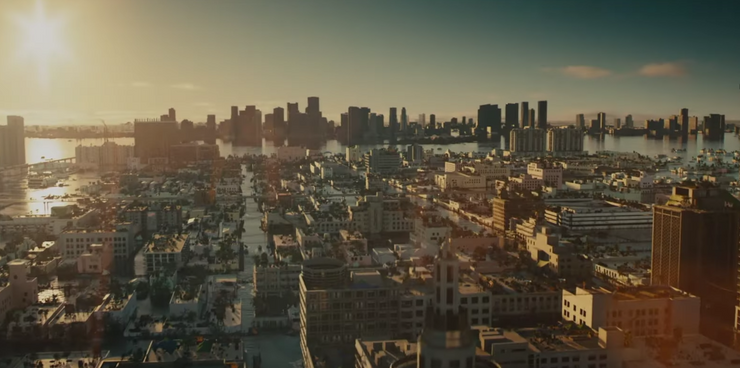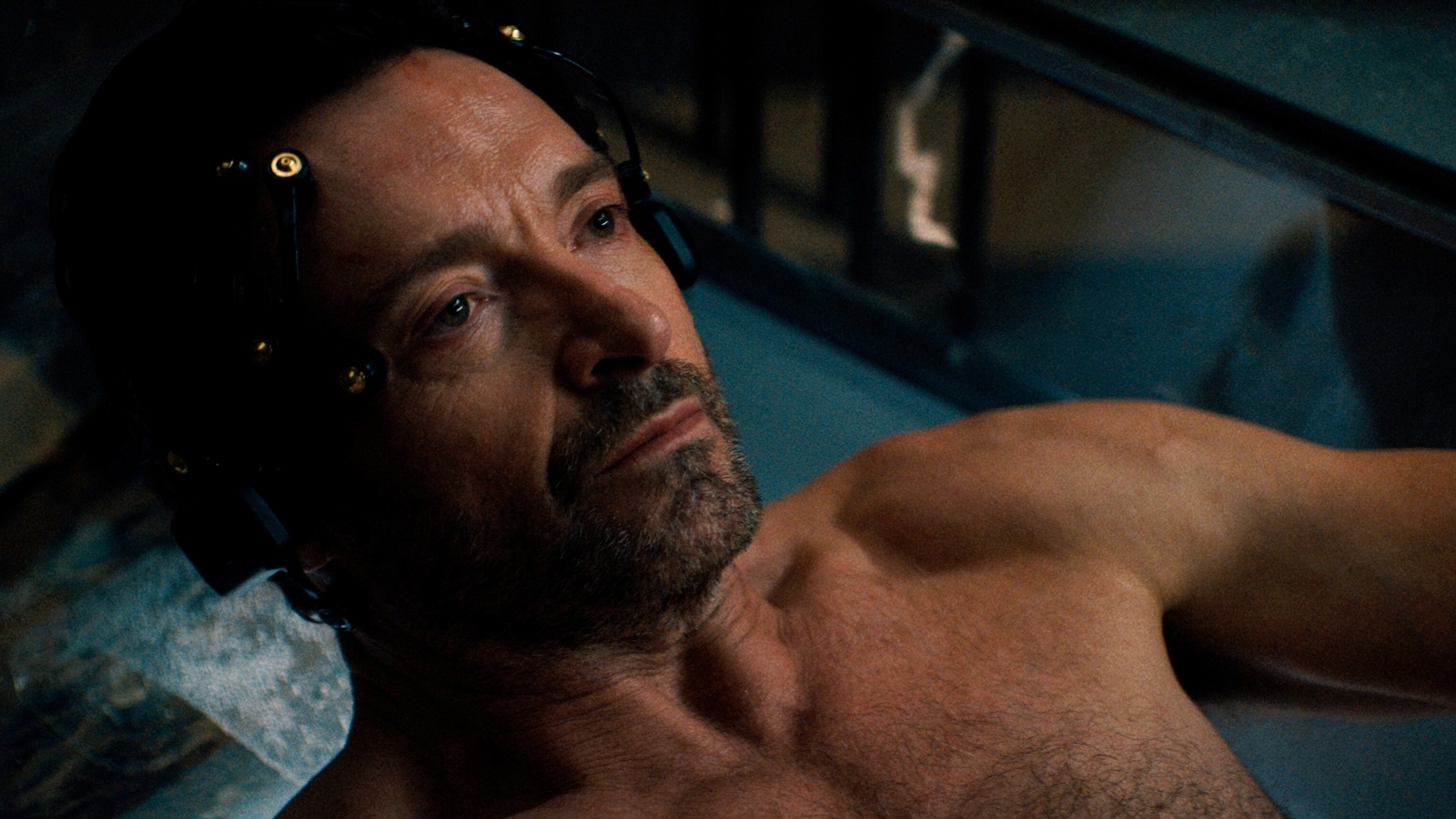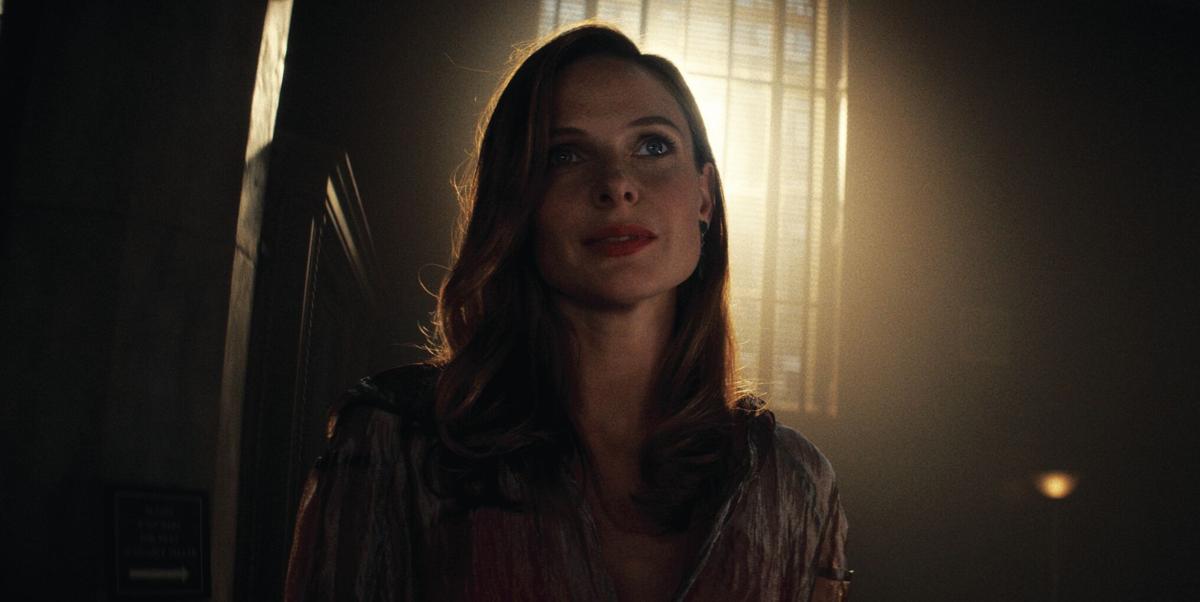If there’s one thing that we can rely on these days, it’s the past. In these so-called “unprecedented times” we find ourselves looking back more and more, as the future is less and less something that we can rely upon. The past, unlike the future, is static and certain.
Bleakness aside, Lisa Joy’s film Reminiscence is certainly a timely movie; it is both about time and of the times. Unlike many recently released films that capitalize on our nostalgia, this film asks us to question our collective obsession with the past. Set in a post-war, climate change-ravaged Miami, Reminiscence follows veteran Nick Bannister (Hugh Jackman), who, along with Emily “Watts” Sanders (Thandiwe Newton), makes his living allowing people to relive their memories using a fantastical sci-fi machine. After helping the enigmatic Mae (Rebecca Ferguson), Nick falls for her. But when she disappears without a trace, he will have to journey into the realm of memory to figure out who Mae really was.

With its unique sci-fi premise—and its lack of recognizable pre-existing intellectual property—the film may seem like something out of left field. However, Reminiscence’s connections to film history run deep. With its running narration, brooding detective-esque hero, mysterious femme fatale, and grimy city, the film draws heavily on the generic conventions of noir cinema. Given its post-apocalyptic setting, one could even compare it to Blade Runner. The film also begs for comparison to David Lynch’s Blue Velvet, given Mae’s employment as a lounge singer. Furthermore, the film’s portrayal of nostalgia, and the harm it can sometimes cause, harkens back to science fiction films like La Jetée. All of which is to say that Reminiscence, as bizarre as it may seem, has not come out of nowhere.

From the first shots of the film, one thing about Reminiscence that makes it stands out is its sense of place. It’s a small thing, but it speaks to the care and effort put into this film. From the way that water from the dams leaks into the city streets, to the set design of the homes of the wealthy, to the taxi boats and ramshackle floating streets, the setting of Reminiscence is masterfully constructed. This sense of place contributes to the sci-fi feeling of the story, without relying too much on flashy gadgets and other traditional generic signifiers. I tip my cap to production designer Howard Cummings.

That said, where Reminiscence really shines is in its thematic content. The film skillfully tackles different ways to handle nostalgia, memory, and the past in general, in a society where the future seems so bleak and uncertain. These issues are never far out of sight, and they carry the film to an ending which seems inevitable but is nevertheless shocking. The questions that Reminiscence raises about what it means to remember, and the dangers that memories pose, are genuinely fascinating and make the film stand out from other sci-fi action thrillers. Joy, who both wrote and directed the film, clearly knew what she wanted it to be about. With respect to its themes, the film’s clarity of vision and ability to focus are commendable.
The film’s other main asset is its actors. Featuring the A-list action stars listed earlier—along with other notable standouts like Marina de Tavira and Daniel Wu—Reminiscence is certainly not lacking in talent. The film has no weak links, and each actor does their best with what they are given.

The elephant in the room, the main thing that keeps Reminiscence from being fully enjoyable, is its writing. The dialogue in particular is clunky, corny, and at times even downright bizarre. The characters speak in stilted, overwrought phrases that rob them of their realism and humanity. They often talk like avatars of the screenwriter, all speaking in the same voice, with the same mannerisms, and in the same style. One could argue that this style of dialogue is used on purpose, meant to recreate the style of old noir films or reflect the self-centered attitude of the film’s main character. Even if the strange dialogue is a feature and not a flaw, the point stands that it distracts from the plot, weakens the characters, and overall causes more harm than it does good.
The problems with dialogue bleed over into the film’s problems with characterization. In multiple scenes, characters exposit their backstories and inner motivations to one another, and us. While the characters of Reminiscence do have depth in their characterizations, that depth falls flat in its delivery. Once again, it’s a problem of realism; the characters don’t behave like people. They behave like a collection of words on a page, disclosing their deepest traumas whenever it’s convenient to the plot.

Watts bears the brunt of this problem. She’s meant to be a sympathetic character with a dark and tragic past, but when that past is presented to us through the film’s badly-written dialogue and poorly delivered exposition, it quite simply fails to connect. Watts plays an important thematic role in the film, as something of a foil to Jackman’s Nick, and when it comes to her embodiment of the film’s central themes, Watts is a genuinely well-written character. This just further illustrates that the film’s problems with writing are in its dialogue, not its overall structure. Newton gives Watts her all, but it’s not enough to save the film. Ferguson’s Mae is also a casualty of poor characterization. The film seems to try to imbue her with psychological depth, but in the end her character still revolves around Nick, falling into the classic trope of the morally gray woman who is cured of her complexity through a man’s love.

The writing problems of Reminiscence also extend to the film’s worldbuilding. The film spends too much time talking about the ill-defined war in this world’s past, so much so that it distracts from the story at hand and leaves the viewer feeling more confused than interested. Yet somehow, the film also doesn’t spend enough time really unpacking the effects and causes of that war. Since American anxieties surrounding immigration seem to have been this war’s main catalyst, it’s disappointing that this extremely relevant social issue was not given enough time in the narrative to be handled properly. Instead, it’s just used as set dressing, which is then buried under a flood of irrelevant exposition.
Contrast this to the way the film handles the device at its core, which allows the characters to relive their memories. The specifics of the machine are only described insofar as they’re relevant to the plot, like that they use electricity, and can “burn” their user if the same memory is visited too many times. The fairly light exposition surrounding the worldbuilding of the machine allows its thematic purpose in the narrative to really shine, unlike the war, which is bogged down by its own vagueness.

All of this may seem like an argument that Reminiscence is a bad film. It’s definitely not, but it’s also not good either. It’s complicated.
In a word, Reminiscence is ambitious. It’s a thematically interesting story set in a new science fiction setting. Despite its flaws, it feels like a breath of fresh air. That said, its flaws are still present and extremely noticeable. Clunky dialogue, flat characters, and overwhelming exposition all hold the film back from being a truly great sci-fi drama.
All that said, Lisa Joy certainly has an interesting directorial voice, and a strong idea of what makes a sci-fi film compelling. Reminiscence isn’t terrible; it’s just not great, and certainly not as good as it could’ve been, given its fascinating premise. It’s worth the watch, if you can power-through the cringe-worthy dialogue and frustrating characters.
3/5 STARS
